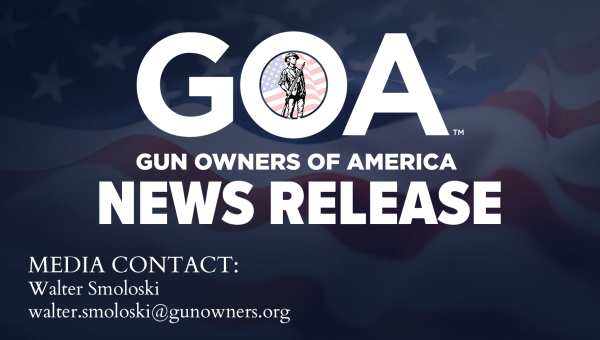Post-Heller D.C. Continues to Experience Historically Low Homicides
In 1989, District of Columbia Mayor Marion Barry felt obligated to offer a rationalization for his city’s horrific homicide rate, stating, “Outside of the killings, we have one of the lowest crime rates in the country.” This week, Washington’s WTOP radio station filed a report highlighting just how far D.C. has come from the days when it was referred to as the nation’s “murder capital.”
The article points out that “[f]rom 1990 through 1995, the city averaged more than 430 homicides annually… In 2012, D.C. totaled just 88 homicides.” Further, although there was an increase in homicides in 2013 and the first portion of 2014, the piece makes clear that “from an historical perspective, the rate is extremely low.”
In an interview with the station, Chief Cathy Lanier of the Metropolitan Police Department credited community policing tactics for the turnaround. The executive director of the DowntownDC Business Improvement District echoed those sentiments. Others might cite as an important factor what the Washington Post in 2013 called “the avalanche of cash that made Washington rich in the last decade.”
Criminologists, sociologists, and economists can debate the reasons D.C. has witnessed such a transformation, but three things are clear. First, the District’s worst years for homicide were experienced under the unconstitutional Firearms Control Regulations Act of 1975, which banned new handguns. Second, homicides, which were already trending downward, continued to plummet following the 2008 Heller decision that overturned the city’s handgun ban. Third, predictions about the catastrophic outcome of recognizing Second Amendment rights for D.C. residents have been proven, in the intervening six years, to be unfounded hysterics.
Today’s reality is a far cry from the bleak future handgun ban supporters envisioned in the time period surrounding the Heller decision. After the federal court of appeals decision holding the District’s ban unconstitutional, the Violence Policy Center issued a press release, “Threat of Handgun Ban Repeal Puts Lives of DC Residents in Supreme Court Balance.” The article claimed that the ruling “would certainly increase gun death and injury among District residents.” After the Supreme Court ruled in Heller, VPC added in another release that the Court had “accepted an abstract academic argument with dangerous real-world results for residents of the District of Columbia.”
A March 2007 Washington Post article covering the circuit court’s ruling stated, “The 2 to 1 decision by an appellate panel outraged D.C. Mayor Adrian M. Fenty and other city leaders, who said that they will appeal and that gun-related crimes could rise if the ruling takes effect.” When the Supreme Court handed down its decision, Fenty proclaimed, “I am disappointed in the court’s ruling and believe that more handguns in the District of Columbia will only lead to more handgun violence.” Expressing his solidarity with the D.C. government, the infamously anti-gun Mayor Richard Daley of Chicago said the ruling was “a very frightening decision.”
This ceaseless pattern of anti-gun fear mongering coinciding with any easing of a jurisdiction’s gun control laws, followed by a period of time which proves those fears to be unfounded, should now be familiar. In some cases, those who opposed the elimination of firearm restrictions have even admitted their mistakes. Unfortunately, in a city that remains intent on prosecuting and registering otherwise law-abiding citizens for the most minor infractions of its onerous gun control laws, it seems unlikely that D.C. officials, even those eager to boast of the improving conditions, will acknowledge they were wrong.






